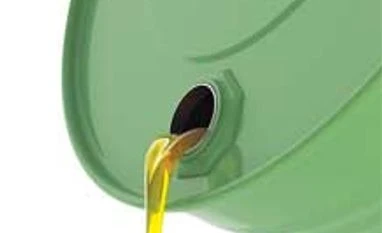Brent crude oil steadied around $63 a barrel on Tuesday, not far below the 2015 high, supported by worries that a civil war in Yemen could destabilise the Middle East region, affecting oil supplies.
Oil has climbed around 15 per cent this month due to concern over the conflict in Yemen, Saudi Arabia's southern neighbour.
The seaways around Yemen are some of the most important for the international oil trade with access points to the Red Sea and Suez Canal and the Middle East Gulf.
Brent crude for June LCOc1 was down 30 cents at $63.15 a barrel by 1105 GMT. US crude for May CLc1, which was due to expire later on Tuesday, was down 10 cents at $56.28 a barrel.
"Geopolitics is supporting oil at the moment," said Tamas Varga, analyst at London brokerage PVM Oil Associates.
But the global oil market is heavily oversupplied and a rapid build of inventories, particularly in the US, has been weighing on prices.
US commercial crude oil inventories are forecast to have increased by 2.4 million barrels last week, rising for the 15th consecutive week, a preliminary Reuters survey showed.
Saudi Oil Minister Ali al-Naimi told Reuters in Seoul this week that the world's top crude exporter expected to produce at near record highs of around 10 million barrels per day (bpd) in April.
Analysts warn Organization of the Petroleum Exporting Countries (OPEC)'s ability to cope with an unexpected surge in demand is diminishing fast.
"If the demand and non-OPEC supply responses to lower prices are similar to what was experienced in the 1980s, the very low level of spare capacity carries a risk of a price spike in the not too distant future," said analysts at PIRA Energy.
OPEC's spare capacity could halve to as low as 1.7 million bpd this year, far below the level of more than 10 million bpd in the 1980s, when Saudi Arabia last opted for market share over price.
Oil has climbed around 15 per cent this month due to concern over the conflict in Yemen, Saudi Arabia's southern neighbour.
The seaways around Yemen are some of the most important for the international oil trade with access points to the Red Sea and Suez Canal and the Middle East Gulf.
More From This Section
Brent hit a 2015 high of almost $65 a barrel on April 16, up more than 40 per cent from a January low of just above $45. Prices have also been supported by speculation over falling the US output, after data showing the number of US exploration and production oil rigs fell to their lowest since 2010.
Brent crude for June LCOc1 was down 30 cents at $63.15 a barrel by 1105 GMT. US crude for May CLc1, which was due to expire later on Tuesday, was down 10 cents at $56.28 a barrel.
"Geopolitics is supporting oil at the moment," said Tamas Varga, analyst at London brokerage PVM Oil Associates.
But the global oil market is heavily oversupplied and a rapid build of inventories, particularly in the US, has been weighing on prices.
US commercial crude oil inventories are forecast to have increased by 2.4 million barrels last week, rising for the 15th consecutive week, a preliminary Reuters survey showed.
Saudi Oil Minister Ali al-Naimi told Reuters in Seoul this week that the world's top crude exporter expected to produce at near record highs of around 10 million barrels per day (bpd) in April.
Analysts warn Organization of the Petroleum Exporting Countries (OPEC)'s ability to cope with an unexpected surge in demand is diminishing fast.
"If the demand and non-OPEC supply responses to lower prices are similar to what was experienced in the 1980s, the very low level of spare capacity carries a risk of a price spike in the not too distant future," said analysts at PIRA Energy.
OPEC's spare capacity could halve to as low as 1.7 million bpd this year, far below the level of more than 10 million bpd in the 1980s, when Saudi Arabia last opted for market share over price.
)